This articles stretches back to days of emperors of empires and kings and queens kingdoms in Africa. Stay tuned as we unravel the ten(10) most powerful African Rulers in the Africa. Some names might sound familiar, yet little is said about them- find out more;
King Mansa Musah
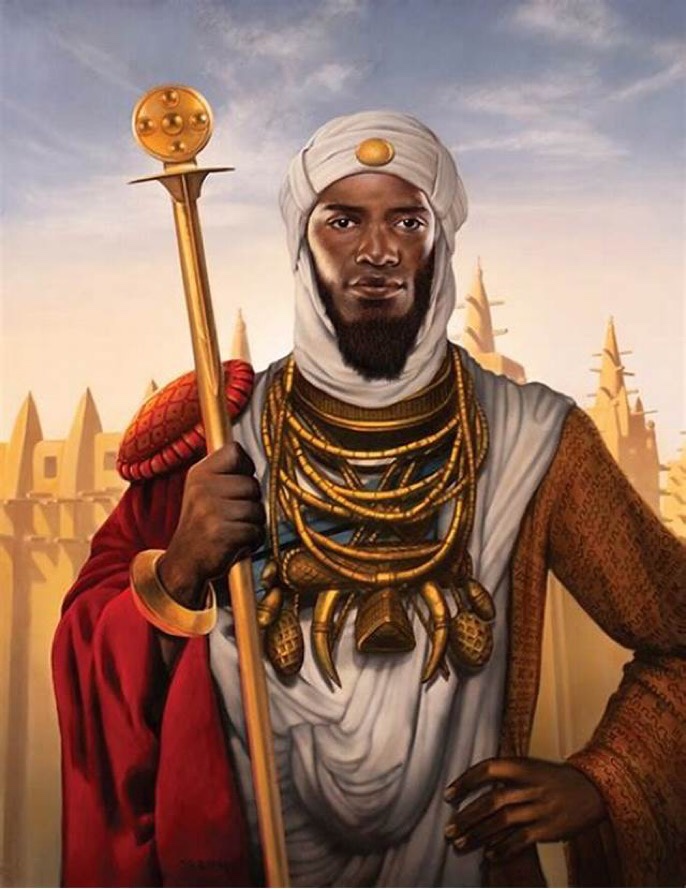
Mansa Between 1306 until 1332 A.D., Musa was King of the Mali Kingdom. Musa Keita is his real name, although he went as Mansa, which means “King of Kings” or “Emperor.” He was the kingdom’s tenth emperor.
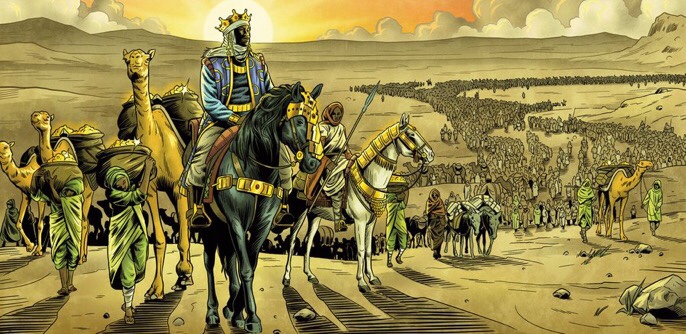
This ancient emperor is renowned for making a pilgrimage to Mecca with 72,000 citizens. Mansa Musa has been acknowledged as the greatest African emperor of all time. The Mali kingdom became one of the most prosperous empires during his leadership. This was fuelled mainly by the production of gold, salt, agriculture and dynamic trade. He was a prolific military leader and was lavish in his spending. The king captured several cities, which extended his territory to modern-day Mauritania, Senegal, Gambia, Guinea and so on.
Shaka Zulu of the Zulu tribe
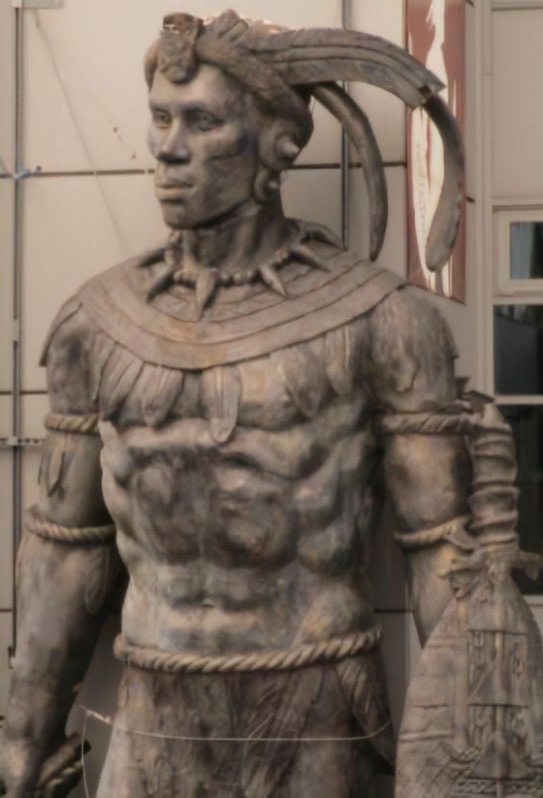
The names of African kings were derived from their origin tribes, their forefathers, or the traditions surrounding their birth. Shaka Zulu, for instance, was initially known as Sigidi kaSenzangakhona. It is thought that he derived the appellation ‘Shaka’ from his Nandi, his mother, was suffering from an intestinal disease caused by the iShaka bug, according to his father’s assertion. Shaka established the renowned Zulu empire in South Africa. He is known to have united the Zulu tribes by dictatorial tactics. He is also renowned for assembling these tribes into a formidable military force. Shaka’s warriors fought their adversaries with standardized weaponry. Among the weapons he created was a short spear with a protruding point. During his cruel rule, Zulu’s troops slaughtered a total of two million adversaries.
King Amenhotep III
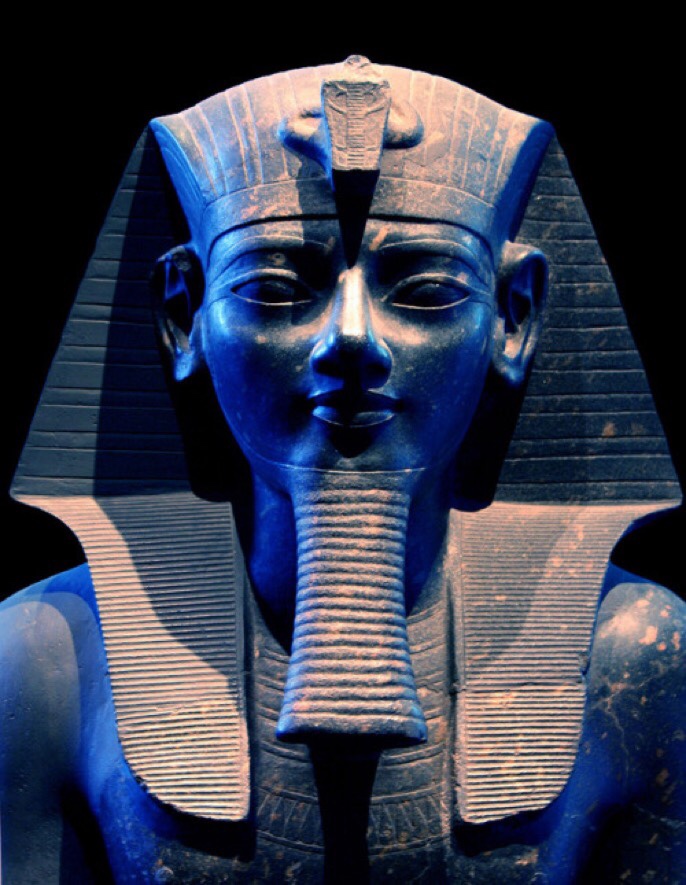
Amenhotep III, often known as “Amenhotep the Magnificent,” is another well-known African ruler. In the 18th dynasty, he was one of Egypt’s greatest pharaohs and came to power at the age of 12. Under his direction, the nation enjoyed stability, prosperity, and peace. In addition, Egypt established a significant impact on diplomacy and international policy. To honor his wife, Queen Tiye, he created an artificial lake outside of his palace. For 38 years, the two shared authority and ruled the land jointly.
Oba Oduduwa the ruler of Oyo empire.
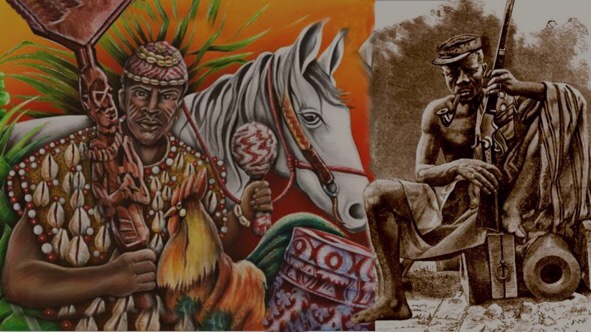
In 700 A.D., this African king ruled the Oyo Empire. In the Yoruba culture, he is revered as an ancient god. To build Yorubaland, he arrived from the lower Nigerian region and conquered numerous existing settlements. Oduduwa has 16 children. Before his death, he dispatched each of them to reign autonomously over his captured territory. This resulted in the establishment of the kingdoms of Ila, Oragun, Owu, Ketu, Sabe, Popo, and Oyo, which comprised the Yoruba dynasty lineage.
King Oba Ewuare
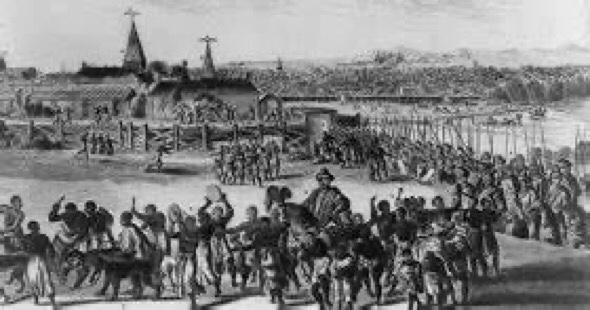
He was also recognized as Ewuare the Great and the progenitor of the Yoruba people. From 1440 to 1473, he ruled as the first monarch of the Benin Empire. Oba Ewuare was also one of the region’s earliest warrior kings. He captured 201 nearby towns and villages. Together with his son, Oba Ozolua, he fostered international trade in Benin, constructed opulent palaces, and devised a number of strategic measures that benefited their authority. During his reign, the arts in Benin flourished, and several cultural customs and celebrations were established.
King Endubis
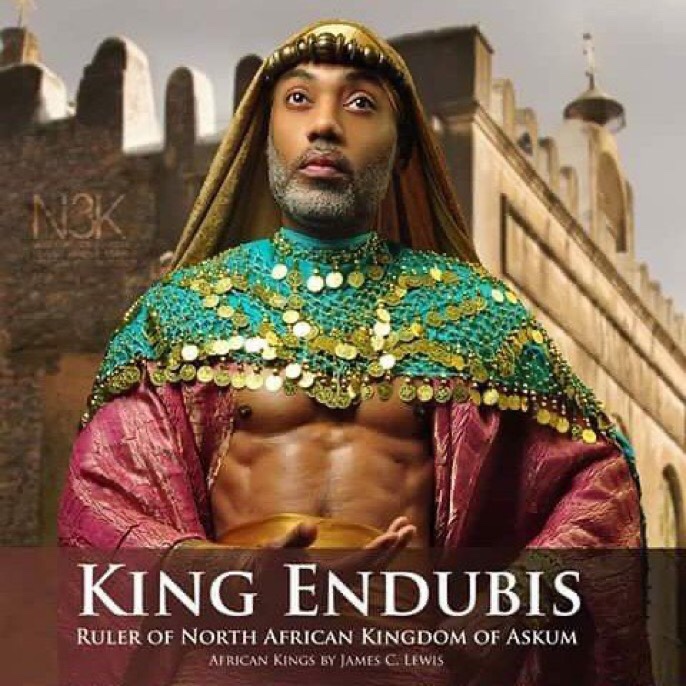
This Ethiopian monarch of the kingdom of Axum was the first to mint gold, silver, and bronze coins bearing his image and slogan. He existed from 270 to 300 BCE. Endubis is also renowned for subjugating Nubia, commonly known as the ancient kingdom of Meroe.
King Taharqa
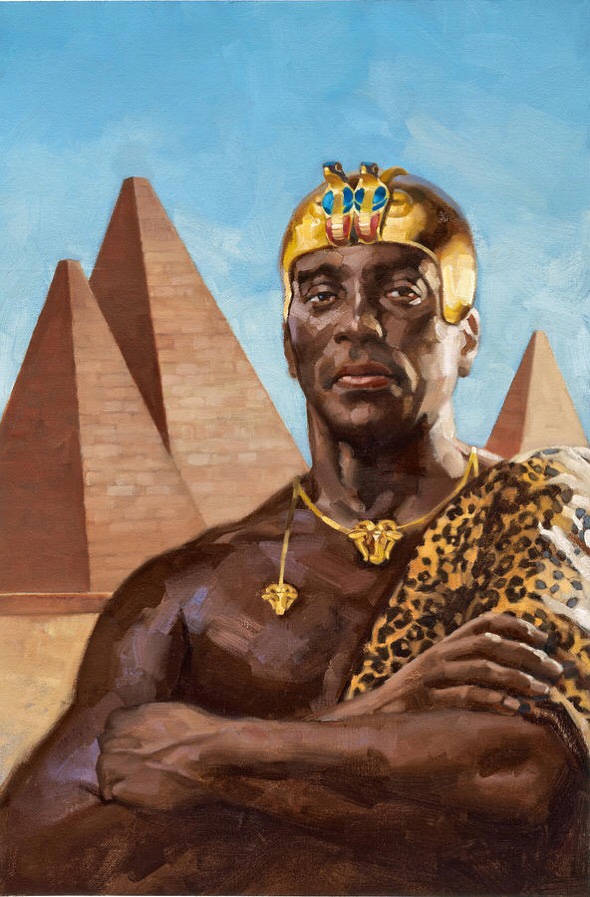
His name translates to “young warrior,” and he is also known as Tirhakah. This Nubian king was the final Egyptian ruler of the 25th dynasty, ruled from 690 to 664 B.C. Taharqa united the kingdoms of Egypt and Nubia, creating the biggest empire in Africa at the time. This emperor ushered in a new era of peace and stability, revitalized the arts, and initiated a number of construction projects. Bible historians believe that Taharqa is mentioned in 2 Kings 19:9 and Isaiah 37:9 as the Egyptian Cushitic ruler who waged war against the Assyrian king Sennacherib.
King Ezana of Aksum
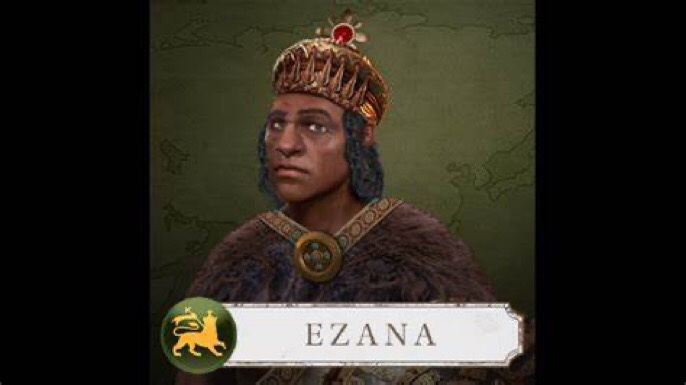
Modern-day Eritrea was ruled by King Ezana of the kingdom of Aksum. He is celebrated as the first Ethiopian king to accept Christianity and convert his entire kingdom to the faith. He played a crucial role in the establishment of the Ethiopian Church. Ezana is also renowned for destroying Meroe, a formidable rival kingdom. He anticipated the construction of numerous one-of-a-kind buildings and obelisks (tall, pyramid-like monuments). In addition to expanding international trade, this king made Axum prosperous. India and Greece have both unearthed his coins.
King Sunni Ali Ber
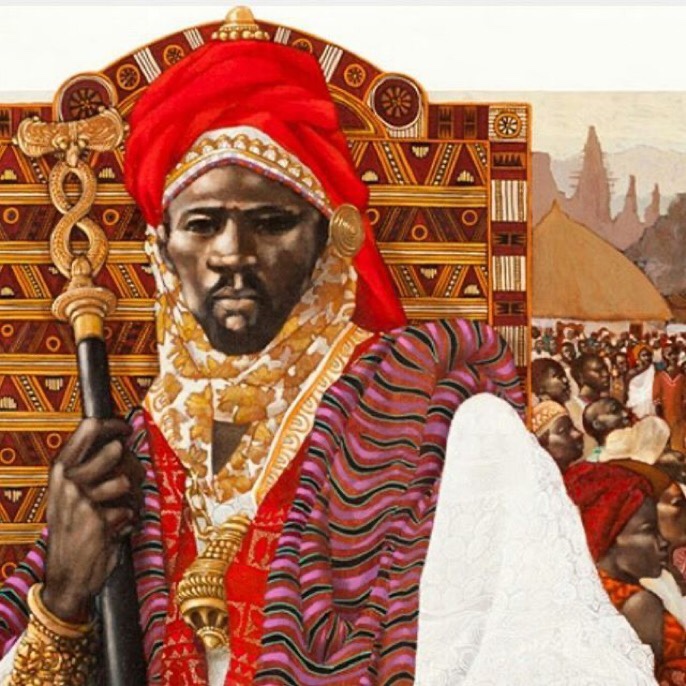
The Songhai Empire was founded by Sunni Ali, who ruled between the 15th and 16th centuries. During his rule, the Songhai Kingdom flourished and overtook the Mali Empire by absorbing its territories, including Timbuktu. Sunni also possessed a formidable military force and utilizing amphibious operations to attack via the Niger River. He belonged to a Sunni Muslim dynasty. During his reign, Islam spread widely throughout urban and rural centres, making the Songhai empire the largest Muslim West African empire in history.
Sundiata Keita
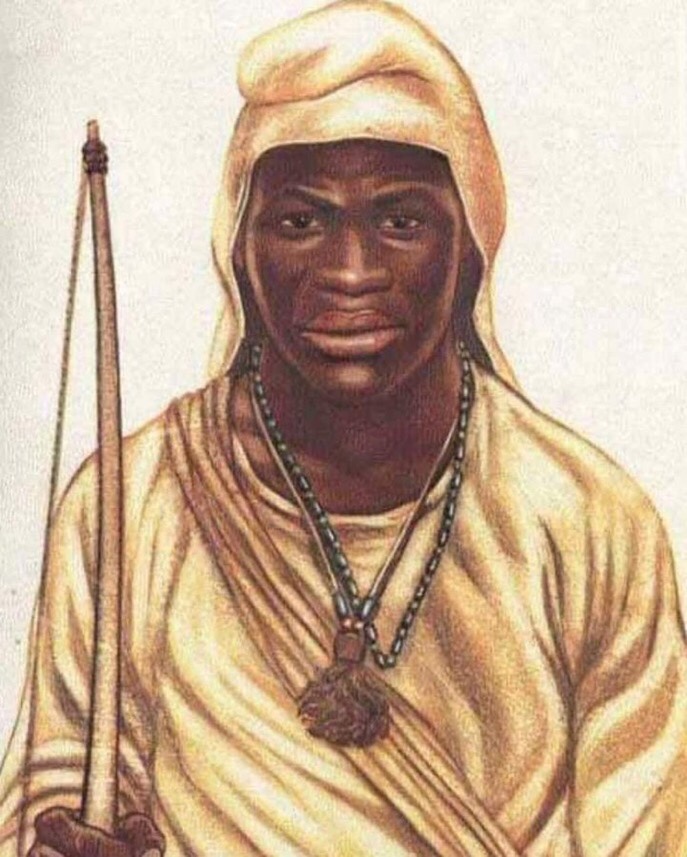
His name translates to “Lion Prince.” Sundiata established the Ancient Mali Empire and ruled from 1235 to 1255 C.E. All of these territories were conquered by him: Gambia, Guinea, Guinea-Bissau, Ivory Coast, Mali, Mauritania, Niger, and Senegal. This ancient African monarch is known as the Mandinka prince. Mali created the first oral charter for human rights, the Manden Charter, under the leadership of Keita. The charter includes abolition of slavery, education, and food security, among other provisions.
Follow http://Kasapanews.com for more historic news of some great African leaders.
Pingback: Ten of Africa’s Best Museums -